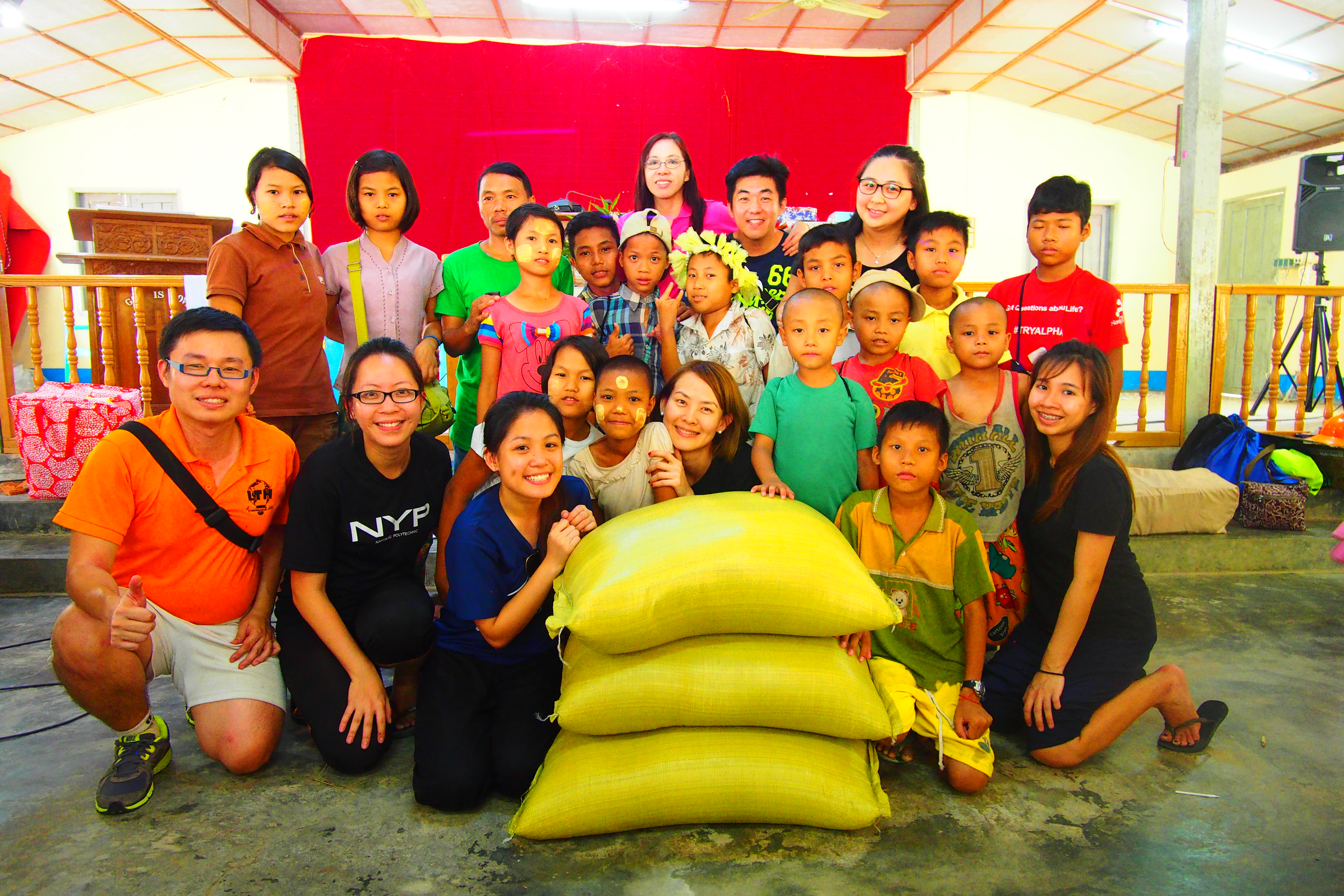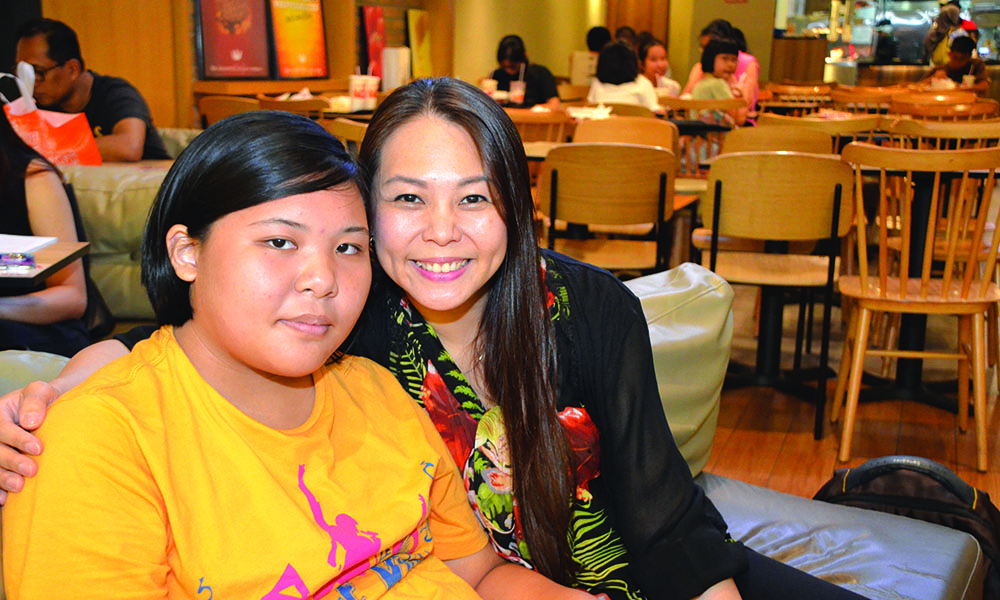By Morgan Awyong
“My idea is this: I can’t save a generation of people now, but if one of the children becomes a significant person, more lives can be changed.” – Linus Lin, founder of Global Village for Hope
On December 21, 2012, he didn’t expect the new Mayan calendar to bring about a new era for him. But Linus Lin, founder of Global Village for Hope, attributed an encounter during his descent at Mount Kyaiktiyo in Burma, also known as Myanmar, to be his trigger for his current philanthropic entity.
As the 37-year-old came down mid-way, he came across a village where two boys were trying to fish in a precarious spot. An old man who was going up on a pilgrimage to the Golden Rock saw this, and chided the boys hotly for their risky action, before passing them a plastic bag of bread from his basket.
The act of kindness that Linus inferred from his observation triggered the realisation that everyone can effect positive change through small acts of sacrifice.

Global Village for Hope became Linus’s realisation – a personal crusade to help rural parts in the world with his limited funds and resources.
He has been tapping into his own contacts and harnessing the influence of social media platforms to rally funds privately, as well as through established charity clubs like the Lions Club of Singapore, Arcadia.
Beginning from the outskirts of Yangon, and with the help of a local English teacher, Joseph Bo Shwe, whom he made ambassador over there, they have identified over 12 homes that need help.
These homes are personal causes in themselves. A Burmese couple would, of their own initiative, take in children who have been orphaned or who are seeking educational opportunities. With their own limited salaries, they would then try to provide these children with sustenance and, when possible, education support for them. With their meagre monthly takings of S$150, of which S$70 goes to rent, every cent becomes opportunity lost or gained, and is a daily conflict between short-term needs and long-term potential.

Linus understands this poverty loop. As an educator himself, he shares: “I value education. It’s a way that life can be changed.” He explains that “only when [the children] pass their high school exam [can] they can go to university. Without that, they will end up as woodcutters or farmers, earning S$80 indefinitely, while a university or technical graduate can at least make S$200, with specialised positions taking in double of that. But only 40% pass, and of those, most have to pay for extra tuition”.
Seeing how the vicious cycle can be broken, he began sponsoring children with potential. In 2014, he sponsored a child and she passed. He picked another two candidates the year after, and they passed as well. In 2016, he stepped up his efforts and managed to provide bursaries to sixteen children. Linus is happy to hear that they are making good progress and are well on their way to graduation.

When asked about his motivations, Linus attributes his formative years as the key to his passion in pursuing philanthropy.
He recalls the General Paper classes he had with his teacher Mr Alan Lim, back in Saint Andrew’s Junior College, which brought his attention to the poverty situation and how disparate world conditions are.
“All this is traceable to my experiences when I was young. I seek inspiration from heroes,” Linus shares. “For example, Mother Teresa, who was my first childhood hero, made me amazed that there were people like that.”
“That was a very meaningful thing. It made me think – what am I here for?”
Another incident with an affluent person taught him the value of a charitable act. His friend had asked Linus what he wanted in life, to which Linus said it was to earn a million dollars. The person asked Linus what he would do with the money if he were to give him that amount. Linus considered and said he would grow it to ten million. “And after that?” the multi-millionaire asked.
“I want to save the world,” Linus admitted.
The person then told him about how he saw a barber in a poor country working at the roadside in the hot sun. With $500, he built a simple shelter for the guy. “So do you have $500 in your bank account now?”
There and then, Linus understood how one did not have to reach a particular point in life before thinking about charity.
Today, with Global Village for Hope, he has entered “the university of my own life”. Enthusiastically, Linus shares: “My idea is this: I can’t save a generation of people now, but if one of the children becomes a significant person, more lives can be changed.”
“What if the next Nelson Mandela is hidden in a village, waiting for the right moment and opportunity to do something different?” he suggests. “What if I was meant to be the one to discover them? This, is what spurred me.”





As the project gains traction, Linus hopes to expand operations by developing a team and building the charity into a foundation. Focusing on talent, he has approached schools, such as SMU and its students, to exercise their knowledge by helping him look at developing sustainability for his beneficiaries.
He is also on the lookout for people to include in his society – willing participants who can contribute to outreach and marketing, in order to maintain the charity’s integrity of fully channelling all funds to projects, and not to administrative processes.
Linus’s effort with Global Village for Hope has taken shape steadily, and is keenly felt by the children and people of Burma, with help from his indispensable partnership with Joseph. He remains humble but ambitious, and the results speak clearly of the positive effects of his project.
Maybe Ralph Waldo Emerson said it best: “The purpose of life is not to be happy. It is to be useful, to be honourable, to be compassionate, to have it make some difference that you have lived and lived well.”
For more information about Global Village for Hope, visit https://www.facebook.com/globalvillageforhope/
















